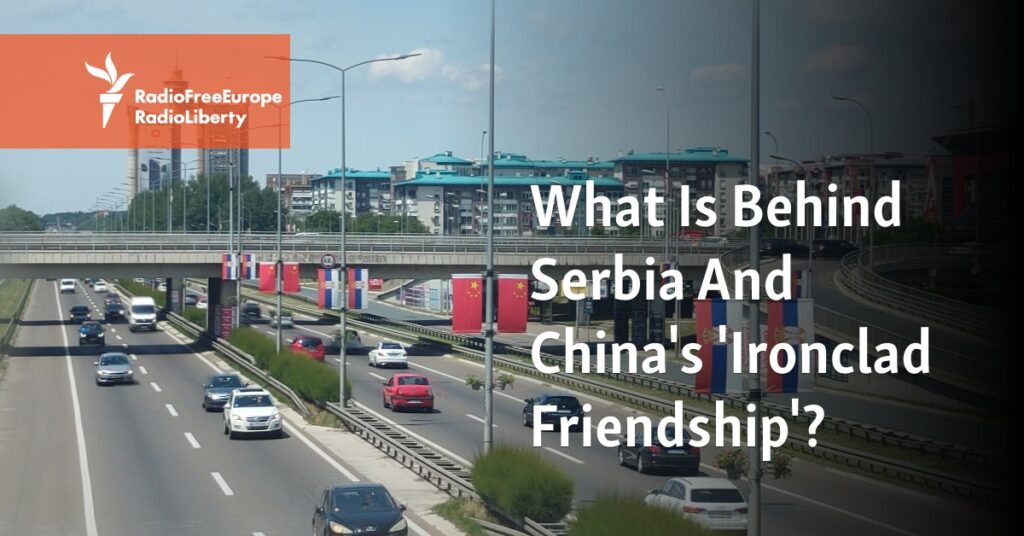President Xi Jinping (left) with then-Serbian President Tomislav Nikolic at a groundbreaking ceremony for a Chinese cultural center in 2016, during the first visit by a Chinese leader to Belgrade in three decades.
During his previous state visit to Serbia, in 2016, Xi laid a wreath at the monument in Belgrade to the three people killed and at least 20 others injured in the 1999 bombing of the Chinese Embassy, an incident for which Washington apologized. (A Chinese cultural center, which is among the largest in Europe, has since arisen at the site.)
On that same visit, Xi signed a Declaration on Strategic Partnership with Vucic’s presidential predecessor and fellow SNS member, Tomislav Nikolic. In 2023, with Vucic unquestionably steering foreign policy, the two sides signed a free-trade agreement that critics feared created a new path for Chinese military exports to Europe. There were also fears the agreement would “lock” Serbia into a closer long-term relationship with Beijing and “further distance” the country from its European neighbors.
More than $5 billion in Chinese investments has flowed into Serbia in the past decade, according to Serbian Trade Minister Tomislav Momirovic.
Many of those deals have been dogged by controversy. In some cases, local protests have targeted Chinese investors’ hiring practices or environmental standards. Critics have also questioned the financing of infrastructure projects through Chinese loans agreed between the two governments without competitive bidding and whose terms remain undisclosed. The Export-Import Bank of China is now among Serbia’s largest creditors.
But in one of the most recent polls to track Serbians’ views of China, two-thirds of respondents said they welcomed Chinese investment, with young people more likely to respond positively. The same survey, published in October 2023 by a Belgrade-based nonprofit, the Institute for European Affairs, said three-quarters of Serbians regard China as a friendly country.
Vucic boasted during a visit to China last year that he was proud Serbia was “the only country in Europe that had never joined declarations criticizing or attacking China on any issue.”
Vuksanovic, the researcher at the Belgrade Center for Security Policy, described Serbia’s key challenge as maintaining some sort of proportionality in its relations with China and the United States. He said Belgrade appeared to have found a formula whereby Washington is its dominant partner in the areas of security and, potentially, relations with its former province Kosovo, which declared independence over Serbian objections in 2008.
“They think they can maintain a balance with China as long as it is reduced exclusively to economic cooperation and high-level diplomatic exchange,” Vuksanovic said, and “as long as there are no deeper provocative moves toward Washington.”
Written by Andy Heil based on reporting by RFE/RL Balkan Service correspondent Ljudmila Cvetkovic in Belgrade
Source link : https://www.rferl.org/a/serbia-xi-visit-china-relations-vucic-russia/32936674.html
Author :
Publish date : 2024-05-07 07:00:00
Copyright for syndicated content belongs to the linked Source.
